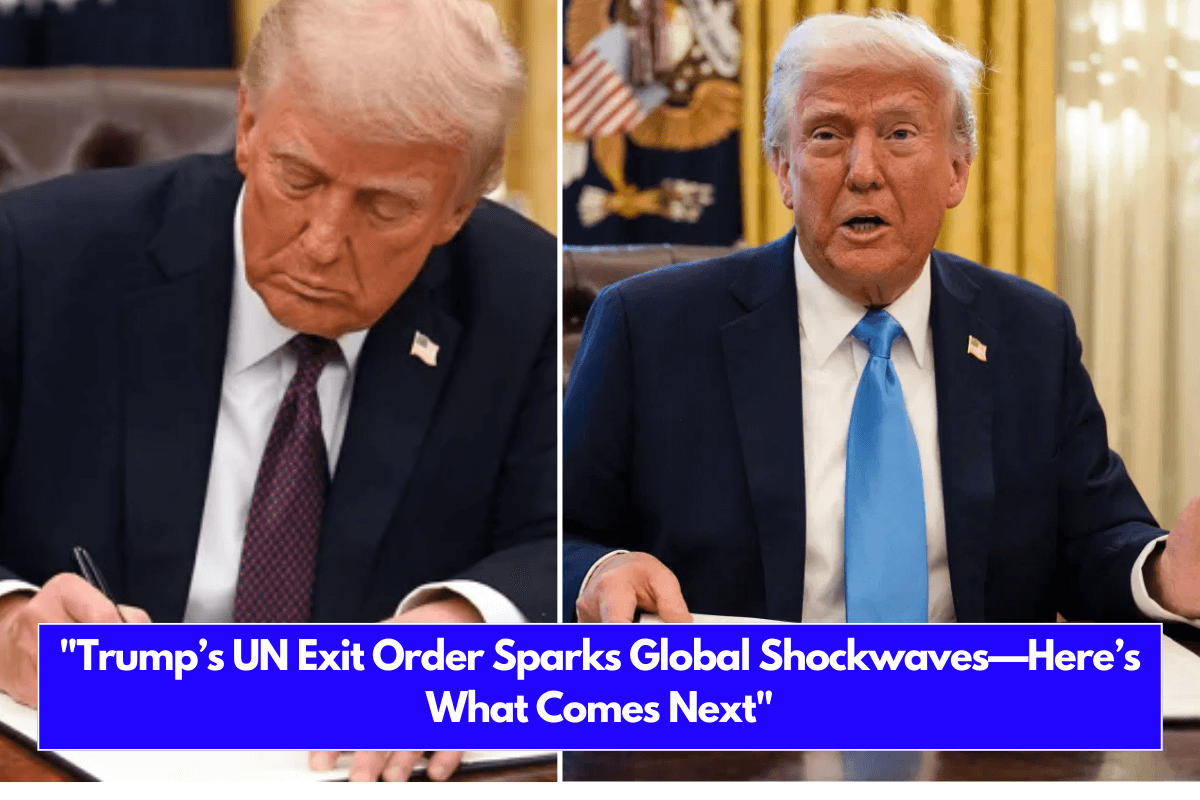On Tuesday, US President Donald Trump signed an executive order pulling the United States out of several United Nations bodies, including the UN Human Rights Council (UNHRC) and the main relief agency for Palestinians (UNRWA).
The order also called for a broader review of US involvement in the United Nations Educational, Scientific and Cultural Organization (UNESCO).
Why the US Withdrew from UN Bodies
White House staff secretary Will Scharf explained that the move was driven by concerns over “anti-American bias” in UN agencies. The US has long criticized several UN bodies, accusing them of unfairly targeting US policies and its allies, particularly Israel.
President Trump emphasized that while the UN has “tremendous potential,” it is “not being well run” and that American contributions to the organization are disproportionately high compared to other countries.
“It should be funded by everybody, but we’re disproportionate, as we always seem to be,” said Trump.
US Withdrawal from the UN Human Rights Council (UNHRC)
The UN Human Rights Council is composed of 47 member states elected by the General Assembly for three-year terms. Although the US ended its most recent term on December 31, 2024, it maintained observer status.
Tuesday’s executive order ends all US involvement in the council’s activities, including its reviews of human rights conditions and investigations into specific abuses.
The US has criticized the council for its alleged anti-Israel stance and for including countries with poor human rights records among its members.
Ending US Support for the Palestinian Aid Agency (UNRWA)
The executive order also withdrew US funding for the United Nations Relief and Works Agency (UNRWA), which provides vital aid to millions of Palestinian refugees. Many in Gaza depend on the agency’s supplies for survival, especially amid ongoing conflict.
US funding for UNRWA had already been cut off in January 2024 under President Joe Biden after Israel accused some of the agency’s employees of links to Hamas’s October 7, 2023, attack.
Although investigations found no direct evidence to support these claims, the controversy caused multiple countries to pause funding temporarily before resuming their support.
Israel has supported banning the agency altogether, arguing that it spreads anti-Israel sentiment. The Trump administration’s withdrawal aligns with this stance.
Review of US Involvement in UNESCO
The executive order also places the United Nations Educational, Scientific and Cultural Organization (UNESCO) under review. The organization promotes global cooperation in education, science, and culture but has been criticized by US officials for its decisions related to Israel and Palestine.
Broader Context of Trump’s UN Withdrawals
This decision is part of a broader trend under Trump’s leadership, both during his current and previous terms in office. Notable withdrawals include:
- The Paris Climate Accord: Trump withdrew the US in 2017, though Biden rejoined it in 2021 before Trump reversed that move again in 2025.
- The World Health Organization (WHO): The US began withdrawing in 2020 under Trump, a process resumed during his current term.
Trump’s broader strategy is to reduce US financial contributions to multilateral bodies and pressure other countries to share the financial burden. He previously criticized NATO, pushing its member states to increase their defense spending.
Trump’s withdrawal from key UN bodies, including the UNHRC and UNRWA, reflects his administration’s ongoing push to prioritize American interests while reducing funding for organizations perceived as biased or inefficient.
The decision has sparked criticism from human rights advocates and UN officials, who argue that US involvement is essential for global cooperation and peacekeeping efforts. However, Trump’s supporters see the move as a necessary step to stop US overreach in international affairs.
